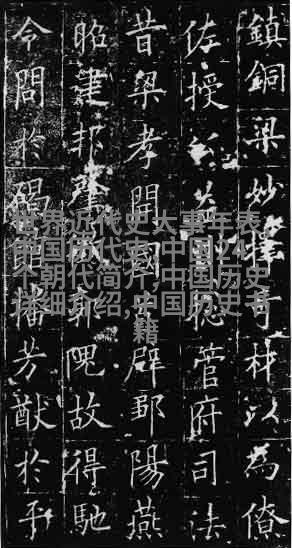在中国历史的长河中,朝代更迭频繁,每一个朝代都有其独特的成就和挑战。从远古到近现代,中国历经多个朝代,每一位皇帝都要面对国内外的种种挑战,其中尤以边疆安全问题为重。汉武帝(公元141年-87年在位)是西汉时期的一位杰出的皇帝,他对内治、外交、文化等方面均有着深刻的影响,而其中最著名的是他对付匈奴的问题。

一、背景与意义
自西汉初年以来,由于北方边疆地区不断被游牧民族侵扰,中央政府不得不加强边防军事力量以维护国家安全,这一过程中形成了“北伐”与“南征”的政策。在这一背景下,“匈奴问题”成为西汉时期的一个重要课题。

二、前世沿革
在秦末楚汉争霸期间,匈奴首领冒顿单于趁乱进攻中原,并占据了黄河流域的大片土地。这使得后来的刘邦和项羽为了巩固自己政权,都不得不先解决这道难题。在刘邦统一天下后,他采取了一系列措施来稳定边疆,如设置九区,以分化并管理不同民族群体,以及实行郡县制,以便更好地控制地方势力。然而,在他的晚年,由于内部矛盾激化和战争消耗过大,最终导致了王莽篡夺政权建立新朝——东汉,但对于如何稳定北部边疆仍然是一大未解之谜。

三、当事人的决策及其实施
1. 实施变法

随着时间的推移,对付匈奴的问题变得更加复杂。当接任皇位的文帝即位后,他开始进行了一系列政治经济上的改革。他废除秦制,将户籍制度改为“五铢钱币”,减轻百姓负担,使得国库充实,从而有足够资金用于军事建设和外交活动。此外,还颁布了一系列法律,如《律令》、《刑法》,增强中央集权,为打击游牧民族提供了法律手段。
2. 外交政策

文后的继承者武帝则将这些改革推向极致。他采取了一系列周密而高明的手段来应对这一威胁:首先,他提出了所谓“塞上三十六计”,包括设立监视点台、中卫兵备御敌;其次,与东胡结盟,共同抵抗匈奴;最后,更重要的是通过出使和谈方式来试图达成长久和平。但是,这些努力并没有完全解决问题,因为一直到太子荆共主死去之前,他们一直保持着相互尊重的地步。
3. 军事行动
尽管如此,当面临严峻威胁时,即使是在此基础上还需要进一步加强军事力量。因此,武帝开始实施扩建长城计划,同时增加骑兵数量,加强巡逻制度,并且还发动几次反击作战以震慑敌人。而他的这番举措最终取得了显著效果,使得许多游牧民族纷纷臣服于 汉室之下,不再构成威胁。
四、评析与影响
从这个角度看,可以说Han Wudi’s solution to the "Xiongnu problem" is a classic example of how a Chinese emperor dealt with the challenges of nomadic tribes on China's northern border during this period. The Xiongnu, like other nomadic tribes, were constantly threatening China's security and stability.
In order to address this issue, Han Wudi took several measures: he first implemented reforms in his administration and economy, which allowed him to gather more resources for military purposes; secondly, he tried diplomacy by sending envoys to negotiate peace treaties with neighboring tribes; finally, when all else failed, he resorted to military action against the Xiongnu.
These actions not only helped stabilize the borders but also contributed significantly to China's territorial expansion during that time period.
As an important part of Chinese history representing dynasty rule system development process experience and historical wisdom accumulation process.
The Han Dynasty under Wu Di was able to expand its territory beyond previous limits through careful planning and strategic decision-making.
Wu Di is known as one of China's most successful rulers due in large part because of his effective management strategies for dealing with external threats such as those posed by nomadic tribes along its northern borders.
This approach demonstrates how strong leadership can lead a nation through difficult times while maintaining stability at home and expanding influence abroad - ultimately making it possible for future generations learn from these experiences about what works best when facing similar challenges today or tomorrow as well!



